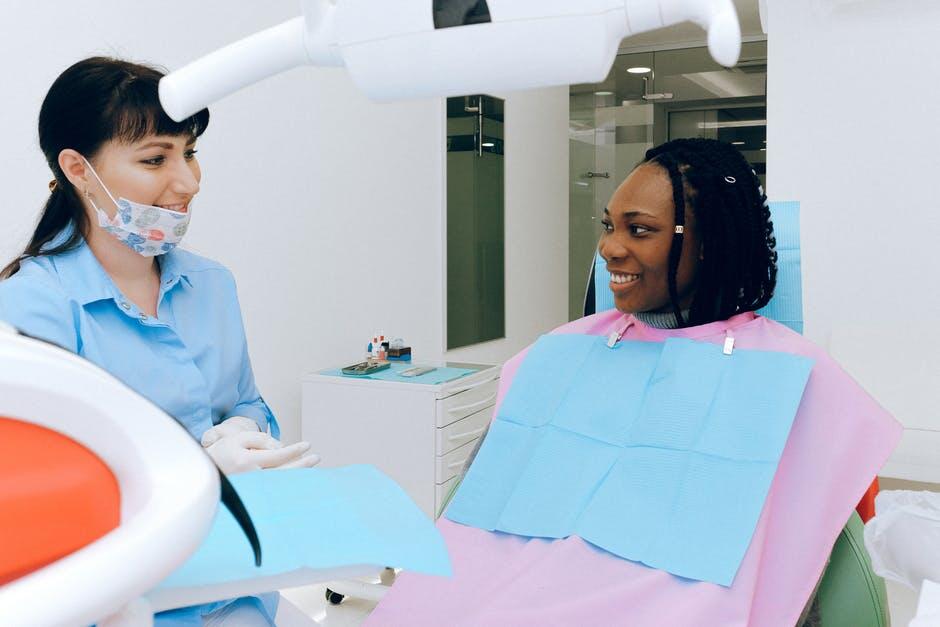
14 Mar Different Types of Dental Cleanings and What to Expect
Starting your journey to stellar oral health often begins in a dental office with a routine check-up. While many cleanings may seem the same, this is far from the truth. Your cleaning should be tailored to you and your needs.
However, perhaps the most common type involves dental cleanings. Many people think that dentists only use one type of cleaning. However, the reality is that there are three different types of dental cleanings they might use on you.
These can vary depending on the state of your teeth and oral health. In this guide, we’ll briefly go over these different cleanings so you can know what to expect.
We’ll also answer some common questions that patients often ask about cleanings. That way, your smile can start feeling great today.
1. Prophylaxis Cleaning
It’s easy to feel intimidated by a word like prophylaxis cleaning. However, this Greek term simply refers to regular cleaning. That’s because prophylaxis is another way of saying protect.
So this can be thought of as a form of preventative maintenance. If you’ve ever had a dental cleaning, this is what you’ve likely encountered. It starts with an x-ray to assess the status of your teeth and gums.
From there, a technician will perform a simple cleaning that removes some of the plaque and tartar that build up around your teeth. From there, the individual will polish and floss your teeth.
Lastly, the head dentist will inspect your teeth to try and find potential problems. If they have a cause for concern, they’ll schedule additional procedures for later appointments. Generally, this type of cleaning takes between thirty minutes to an hour.
2. Scaling and Root Planing
If, after examination, you show potential signs of gum disease your dentist will likely recommend scaling and root planing. This is a form of deep cleaning that’s designed to clean the areas of the teeth found below the gum line.
Compared to regular cleanings it can be a bit more painful or uncomfortable. As such, your dentist might administer a local anesthetic. They also take a lot longer than regular cleanings.
Depending on how much work is needed, they can sometimes take up to two hours. To give you a break, your dentist might break the cleaning up into two or three sessions.
Or they might push through to get it done in one. Make sure to check out this guide to learn more about the difference between regular and deep cleanings.
3. Gross Debridement
If you haven’t gotten a dental cleaning in years, you likely have layers of hardened, calcified tartar buildup on your teeth. This can make it incredibly difficult for the dentist to perform an evaluation.
As such, they will need to remove it before they can proceed with the other types of cleanings. Typically this involves specialized tools.
These days, ultrasonic vibrations are one of the most common ways to remove tartar. Generally, gross debridement shouldn’t take more than an hour to complete.
Which Type of Dental Cleaning Is Right for You?
The answer to this question can depend on a variety of factors. It can include things like your genetic history, the time since your last cleaning, and your home cleaning routine.
That’s why we recommend getting an examination with one of our dentist before the cleaning.
They can inspect the state of your teeth and gums, and then give you a recommendation on the best type of cleaning and dental treatment for your specific case.
How Often Should You Get Your Teeth Cleaned?
Regular dental check-ups can lead to not only a healthier mouth but also a more attractive smile. Experts generally agree that you should schedule a routine cleaning every six months or so.
That being said, some people might benefit from more frequent cleanings. For example, if you smoke, have diabetes, or a history of gum disease, you might need to consider upping the frequency to every few months.
We recommend discussing how frequently your cleaning schedule should be with your dentist.
How Long Can You Go Without Getting Your Teeth Cleaned?
Dental cleanings can be expensive, especially if you don’t have great dental insurance. As such, many individuals and families might postpone their appointments if they’re struggling financially.
So exactly how long can you go without getting your teeth cleaned? It’s not recommended to go more than a year without cleaning. Why? Because this can result in periodontal disease (aka gum disease).
The symptoms associated with this type of disease are often much more expensive to fix than cleanings. In some cases, they can even result in tooth loss and other serious health conditions.
As such, you should view your teeth cleanings as a form of preventative maintenance. While they might recommend a significant cost, they’ll ultimately end up saving you a lot of money in the long run.
How to Find the Best Dentist for Cleanings
A quick and easy way to find a reputable dentist is to look through the reviews.
People often avoid dental cleanings because of the discomfort involved. As such, one of the first things you should look for are practices that prioritize comfort. For example, here at McIlwain Dental Specialists we always put our patients’ comfort first, so they receive the best care. We even offer sedation options for patients with dental anxiety. We are committed to providing a friendly and welcoming environment all members of the family.
Lastly, you want to make sure your dentist is nonjudgmental. This is especially important if you haven’t been in for a cleaning in a few years. You shouldn’t be made to feel shame for the state of your teeth. Instead, they should be understanding while explaining the best solutions to achieve
Ready for Dental Cleanings? Contact McIlwain Dental Specialists
We hope this guide helped you learn more about the different types of dental cleanings. Here at McIlwain Dental Specialists, we know that there can be a lot of anxiety for some people about their cleanings.
That’s why we do everything in our power to create a relaxed, comfortable environment for you, including administering sedation for those who need it.
So if you’re ready for your teeth to feel great, schedule your appointment with us today.


